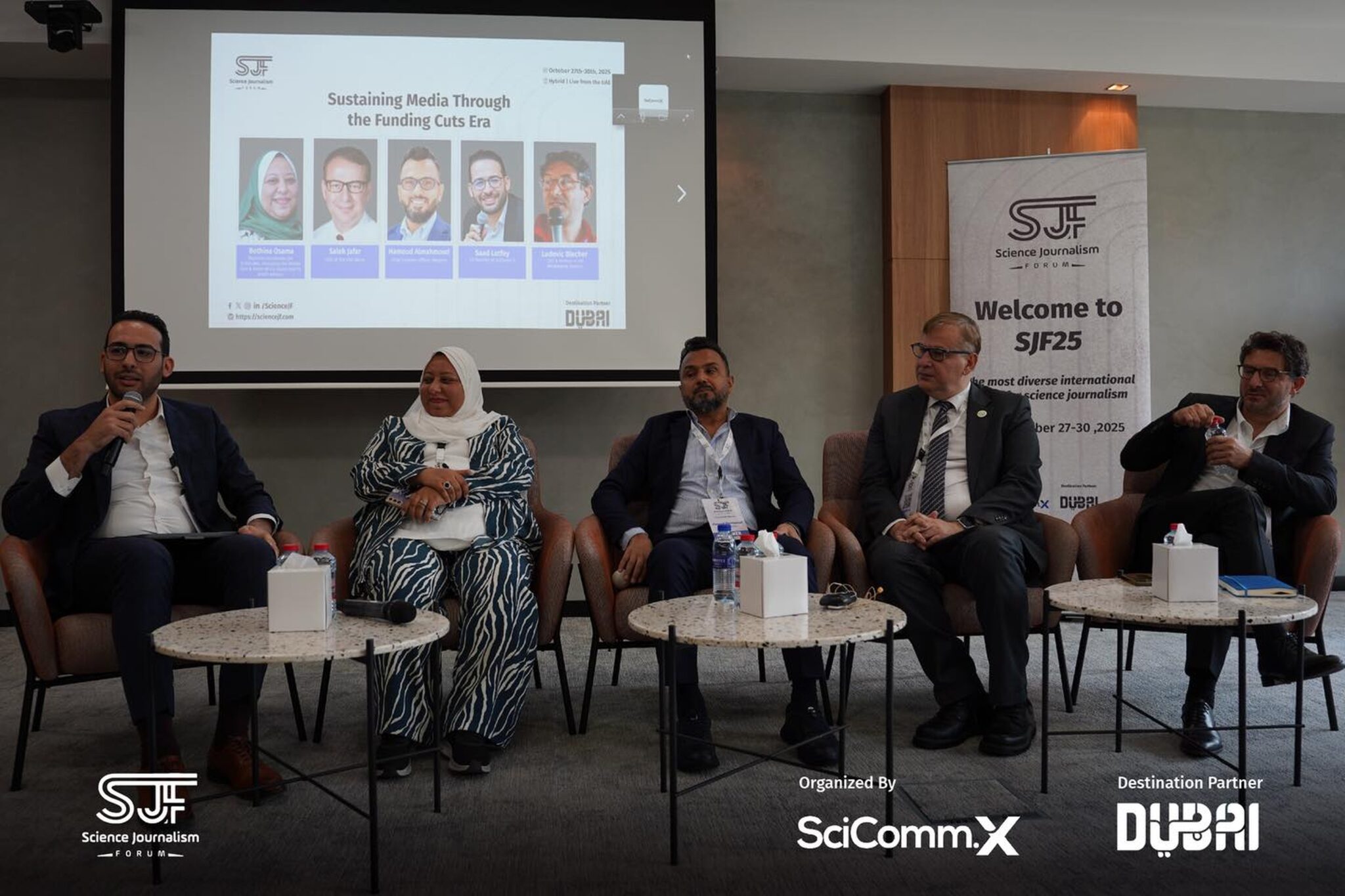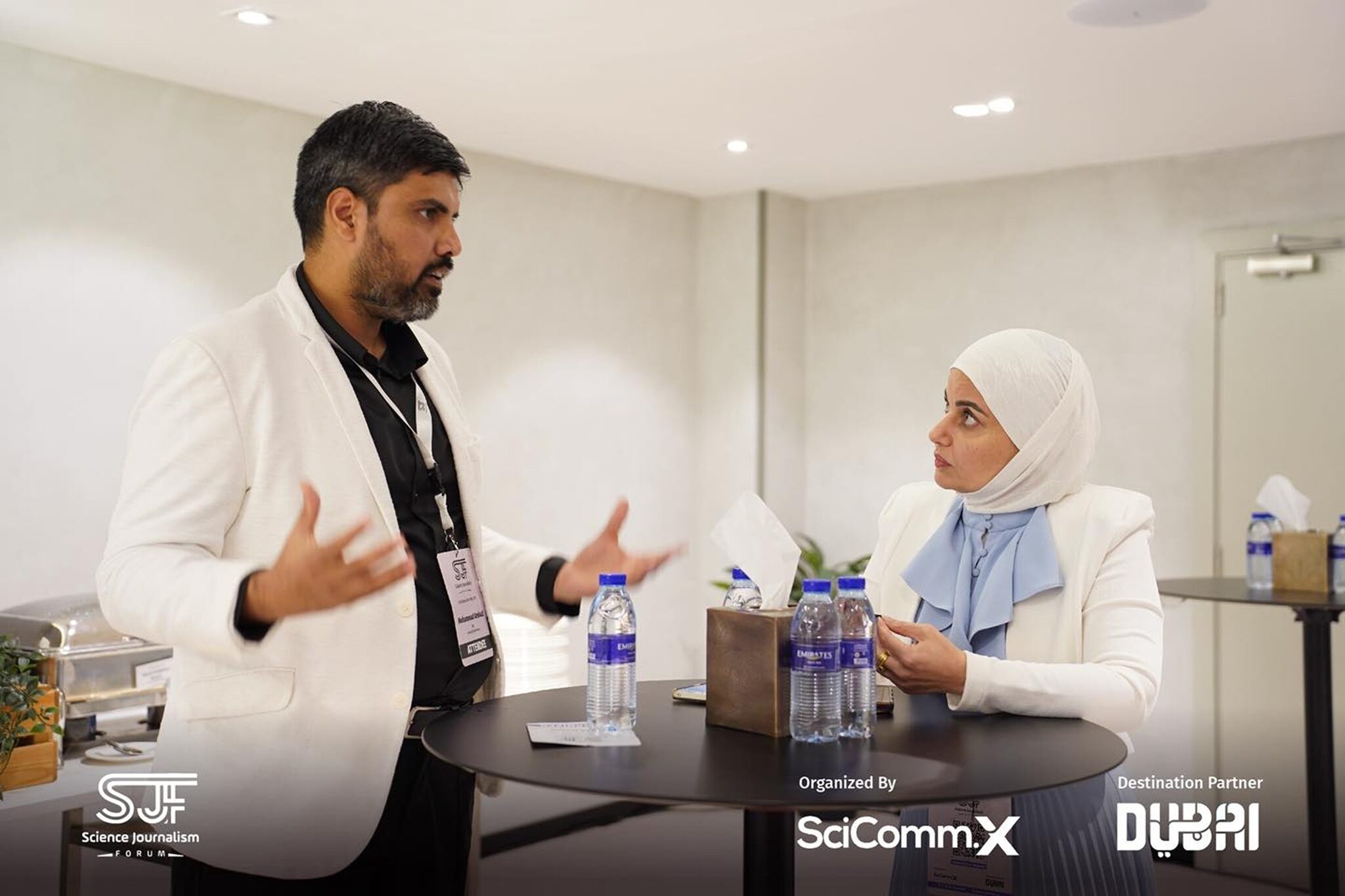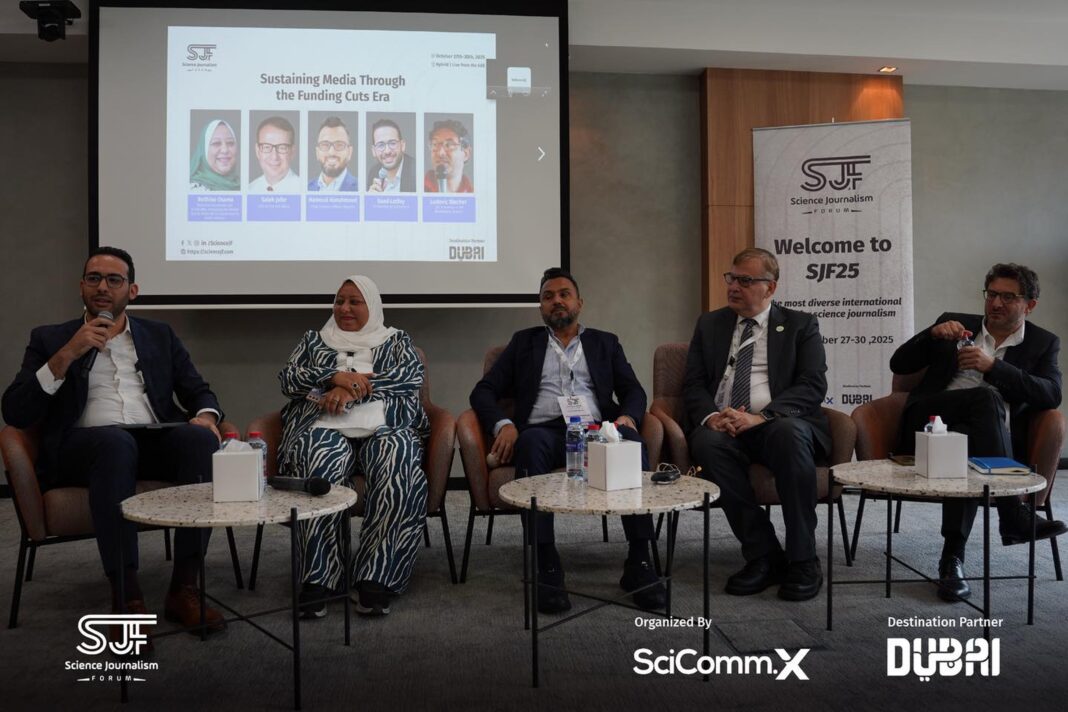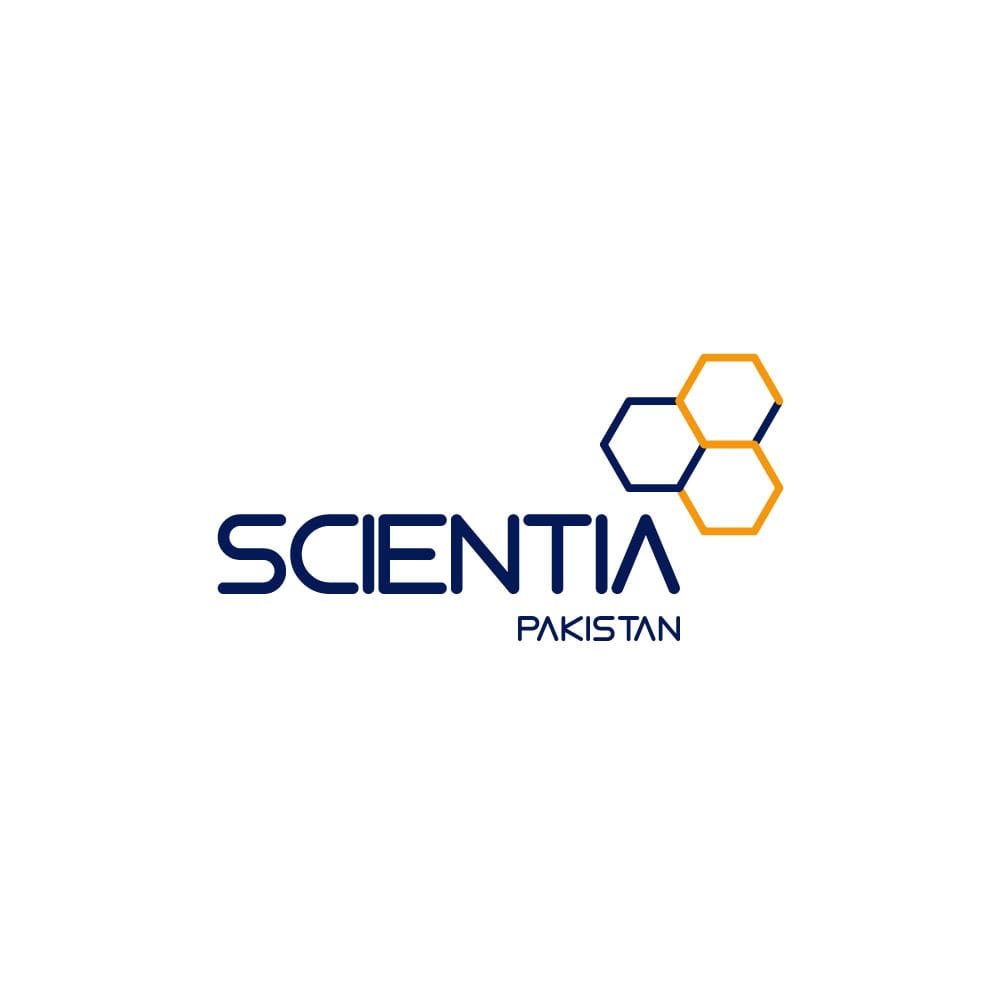From October 27 to 30, 2025, our team attended the Science Journalism Forum (SJF) — a global hybrid event held at the Dubai Knowledge Park Conference Centre/Auditorium, United Arab Emirates. The forum gathered hundreds of science journalists, communicators, researchers, and media professionals to discuss the evolving landscape of science reporting in a rapidly changing world.
Hosted in a hybrid format, SJF 2025 offered participants across continents the opportunity to join interactive sessions, keynote talks, and workshops both online and in person. This inclusivity not only expanded participation but also reinforced the importance of global collaboration in strengthening science communication.
Throughout the four days, speakers and panelists addressed a wide range of timely topics — from climate and health journalism to AI-driven storytelling, data reporting, and media ethics. Discussions highlighted how science journalists can navigate the challenges of misinformation, enhance storytelling for digital audiences, and ensure that scientific knowledge reaches communities with clarity and credibility.

With its mission to promote dialogue and diversity in science storytelling, SJF25 aimed to highlight diverse voices and more impactful journalism. This year’s theme was “Science Journalism at a Crossroads – Rethinking Trust, Funding & Innovation”. The forum featured in-person and virtual sessions in six languages (English, French, Spanish, Arabic, Portuguese, and Mandarin Chinese), making it more accessible and inclusive, as always.
One of the recurring themes was the growing role of innovation in science journalism. Participants explored how emerging AI tools and multimedia platforms can make science reporting more accessible and engaging, particularly for younger audiences.
On Day One, in a very insightful session, Dr. Hakim Hacid, a computer science professor and department chair at Zayed University, spotlighted the urgent need to develop and adapt AI for underrepresented languages and how this can transform access and inclusion in science journalism, as AI does not speak only English.
There was a very engaging session by Sima Hamdah on “virtual lenses, real science and public trust”. The speaker skilfully explored how Extended reality reshapes science storytelling and public trust. She also emphasized the responsibility of journalists to maintain accuracy, trust, and inclusivity in an era where science is more publicly visible than ever before.

Beyond the sessions, the event provided an invaluable networking opportunity — connecting professionals from diverse backgrounds who share a commitment to bridging the gap between science and society. Whether attending virtually or on-site in Dubai, the spirit of collaboration and shared learning was evident throughout.
Attending the Science Journalism Forum was an inspiring experience that reaffirmed the vital role of science communicators in shaping informed, evidence-based dialogue worldwide.
Our team looks forward to applying the insights gained from this year’s forum to our ongoing efforts in promoting accessible, engaging, and responsible science journalism. We believe that the future of this global event is bright, and it will continue to connect and highlight diverse, multilingual voices from different cultures, nationalities, and ethnicities.
Also read: Scientia Pakistan Takes the Lead: Official Media Partner of the Science Journalism Forum 2025!
Recent Coverage by Scientia: Lahore Science Mela 2025— The Ocean of Knowledge


